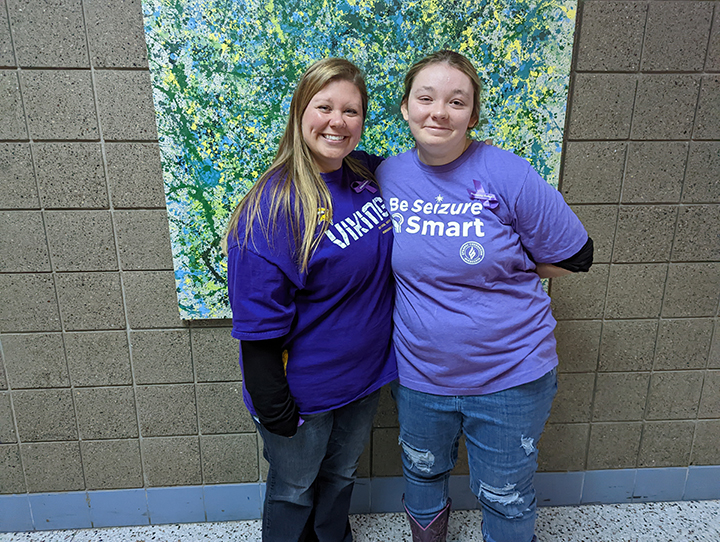Hannah Poshek rallies classmates, teachers around Epilepsy Awareness
News | Published on November 21, 2022 at 11:33am CST

By Melanie Stegner
Hannah Poshek is a pretty amazing senior.
A student at Minnewaska Area High School, Hannah rallied her classmates and teachers in support of Epilepsy Awareness Month on Friday. As a fundraiser for the Epilepsy Foundation of Minnesota, Hannah turned her school purple to raise awareness about epilepsy and to raise support for the foundation.
As someone who lives with epilepsy, Hannah is bringing visibility and awareness to her condition and spreading hope for others who live with epilepsy.
“Epilepsy doesn’t affect my daily life, it’s a part of me. I know at any time I could have a seizure, but I also know I have wonderful support in place. I don’t let it stop me from doing what I love,” stated Poshek.
She’s living proof that epilepsy does not have to limit activities. Hannah isn’t just involved in raising awareness for epilepsy, she’s active in dance, hockey and swimming. This impressive young woman is spearheading this entire event with the support of her school, fellow students and teachers.
The money raised was donated to support the Epilepsy Foundation of Minnesota and, even better, her father’s employer, CNH Industrial, matched the funds raised to double the impact.
Seizure safety is a useful skill for everyone. More than 3.4 million people live with epilepsy in the United States. Seizures involve sudden, temporary bursts of electrical activity in the brain that disrupts the way messages are transferred between brain cells which can cause involuntary changes in body movement or function. Seizures look different from one person to the next.
Seizure first aid is pretty simple. Stay with the person and start timing the seizure. Keep the person safe and turn them onto their side if they are not awake or aware. Nothing goes in a person who is seizing’s mouth, and they should not be restrained. Stay with the person until they are awake and alert after the seizure.
Epilepsy is not contagious, and anyone can develop the condition. It’s a chronic medical problem that for many people can be successfully treated or managed. It’s not rare and can occur as a single condition or may be seen with other conditions that affect the brain such as cerebral palsy, traumatic brain injury and even Alzheimer’s disease.
Poshek has not let epilepsy limit her life. “I wanted to do a different event at my school. By fundraising for epilepsy awareness, I can help others live their best life,” she said.




